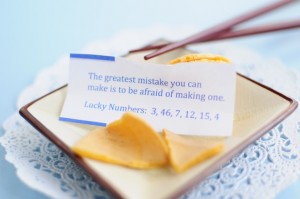This post is by Jacqueline Way of 365give.
As an at home mom and entrepreneur, I fell into the predictable lifestyle of family, work, grocery shopping, and cleaning, 24/7, and on call like a doctor. My world was becoming routine, my focus was narrowing, and I started to forget that there was a whole wide world out there.
Having a dedicated focus is a good thing, and thank goodness mine was healthy, but I was starting to feel that it was time to spread my wings. I wanted to feel a part of the global community and nurture a part of my spirit that had gone dormant—a spirit that my son could learn and benefit from.
I spent the next year or two experimenting and trying new things that would open up my world and enrich not only my life, but the life of my family, my clients, and others. My goal was to find one thing, something, that I could focus on which would re-ignite my flame—put that oomph in my step and add a little something to my routine. I defined the criteria that were important to me: effecting social change, participating in a larger community, exercising important personal values, and expanding my world without taking away from my family. A tall order, yes, but I have never been one to shy away from a challenge.
Experimenting with social change
I defined my personal areas of effectiveness, my challenges for reaching out to global communities (no time to travel and little computer skills), and where the need may be the greatest. I experimented with many different activities, thoughts, and ideas until my husband pointed out the obvious: I naturally was giving to my community, to my family, and global communities through my daily actions.
It was my “Ah ha!” moment. I am a giver, and I give every day, but I didn’t think that this natural reaction was that big idea, the social changer, the mountain mover.
Well, it is. All I had to do was formalize it and build intention.
Embracing giving
My journey made me realize that if my soulful needs were already being fulfilled and I was blind to it, then many others could be in the same position. My actions were important but the communication of the journey, discovery, and simplicity of this adventure seemed critical and the key to the success of giving. Embracing the concept of giving, consciously, gave me my mission: “To unleash the spirit of giving in others to change the world one day at a time.”
Taking a concept, and turning it into a social change mission has been a welcomed addition to who I am, what I do, and how I participate in my local and global community. My world opened up to me in a way that was positive, fulfilling and energizing. And it has grown into a ritual for my family, my clients and my friends. I KISS (Keep It Simple Stupid) every day and see the wonderful effects of this movement more and more each day.
Each day we play the Giving Game (with a three-and-a-half-year-old, games work) and I find lots of places and people to give to on a daily basis. I write about the experiences daily on a new blog (big leap) and share my information through social media (even bigger leap). I have gone from being computer-timid to being a computer warrior. And now other people are learning how it feels to give each and every day in creative, fun and impacting ways.
How to play the Giving Game
Reach out to friends and family
Some of the greatest gifts can be to friends and family members who find it difficult to reach out. Make them a meal, take their kids for a play date, lend an ear, or do something to make their life a lot easier. Everyone has their struggles and giving does begin at home.
Look for a need in your neighborhood
Clean up your park, help out a single mom or dad, clean your clutter and donate it to those who could use it, or donate books to the local library.
Give to strangers
Pay for someone’s coffee, help someone who is lost with directions, smile at everyone you see, say good morning to people on the street, say thank you, and give compliments.
Donate to charity
Just $5 or $10 dollars can go a long way when you’re helping others. There are thousands of organizations that help others and rely on public donations to continue their work. Pick a charity a week, and send off your donation to effect change.
Volunteer
Volunteering is not a new concept and can be done on an ad hoc basis or with a longer intention. There are many online volunteer databases that highlight one-time or ongoing volunteer opportunities through out the world. Start Googling—you’ll be surprised by the possibilities.
Participate in social giving
More and more organizations are finding quick ways for people to build momentum in social effectiveness through the click of a mouse. It’s a great way to feel a part of the community without taking time or money out of your day.
Giving is easy, but a forgotten quality that’s now enjoying a rebirth through communities. Giving with intention can build relationships, deeply affect others and change the world. What would happen if everyone conducted one give each and everyday? I am hoping to find out.
How do you give to others? And how does it make you feel? Share your stories in the comments.
Jacqueline Way is a mom, entrepreneur and author of an online diary, 365give, her giving platform to change the world, one person at a time, one day at a time. This vehicle for giving has enabled her to put a focus, intention and purpose to her giving while inspiring her family to do the same. It maintains her belief that ‘giving is good’ and will positively affect people, places and things when you give every day in creative and positive ways.












Recent Comments